How we made research more accessible

Status quo
At the moment all the research we do, is shared within the respective product team. Infos are saved in Confluence, Google Docs, Slack channels, Jira tickets, and other spaces of that team. For everyone else it can be hard to find, access, and work with other teams' research.
We want to change that, and maximize researchs' impact by making the insights accessible for everyone!
Workshop with designers
To learn more about the daily struggles of doing, documenting, and evaluating research we conducted a workshop with the design team.
How and where are you documenting your research?
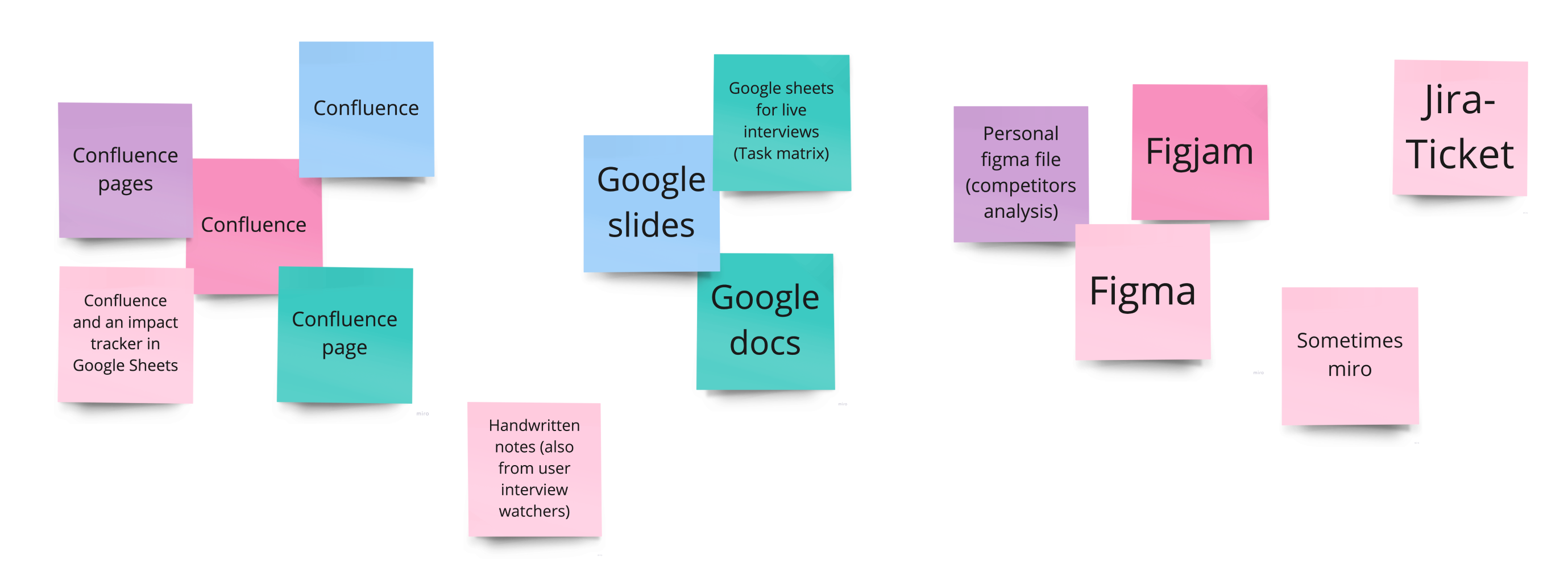
What research activities / methodologies are you mostly performing or would like to perform?

How do you share your research with team, stakeholders, etc?
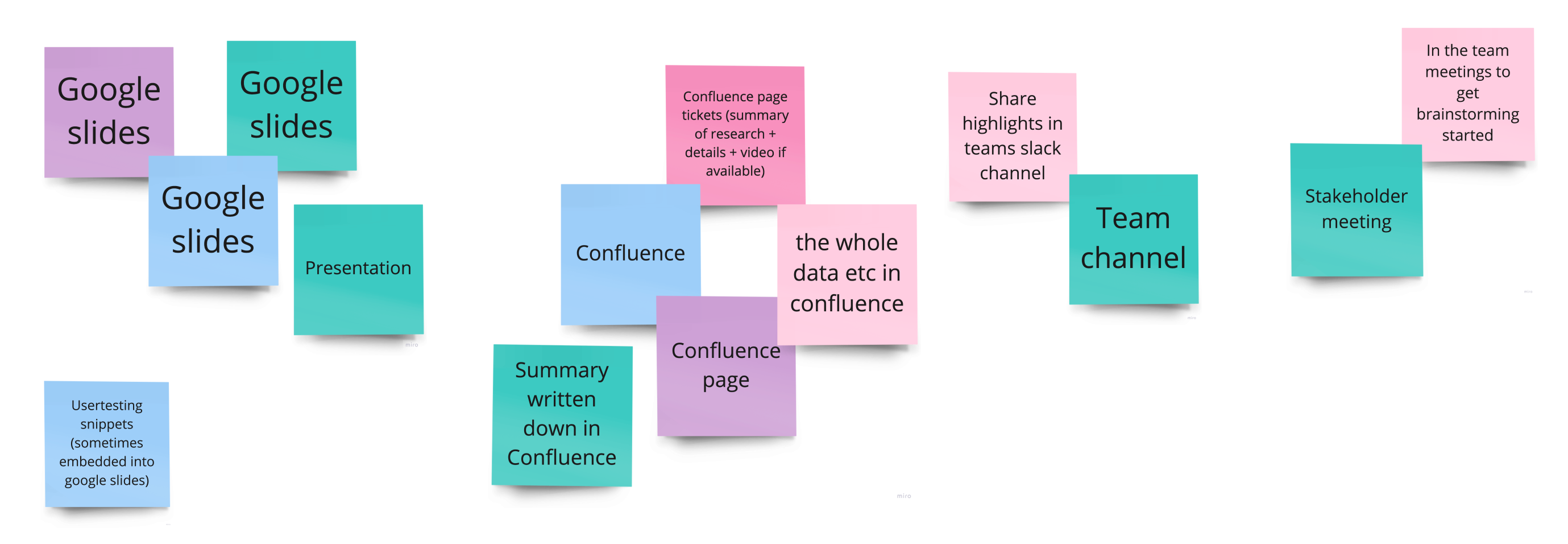
Requirements
Based on the workshop insights and additional feedback from colleagues we decide to create a research repository and define the following requirements:
- Anyone in the company should be able to access the research and learn from its insights
- The new research repository (short Repo) should integrate with our existing tech stack
- The process of adding and maintaining the Repo should not create any overhead for researchers and designers
- We should be as independent as possible from price increases by third parties
- The work required to migrate should be as minimal as possible
A user research repository is a knowledge base that stores and organizes user data, insights, and research to help teams effectively analyze information and collaborate to improve the product experience.
Tools
These are the different tools we tested, to match them with the above requirements:
EnjoyHQ by User Testing
- expensive & yearly price increases (12.000 €)
- linked to our User Testing account/environment
- limited to 10 contributors as per the cheapest plan, unlimited viewers
- clean and intuitive UI
- most functionalities can be reproduced in Confluence
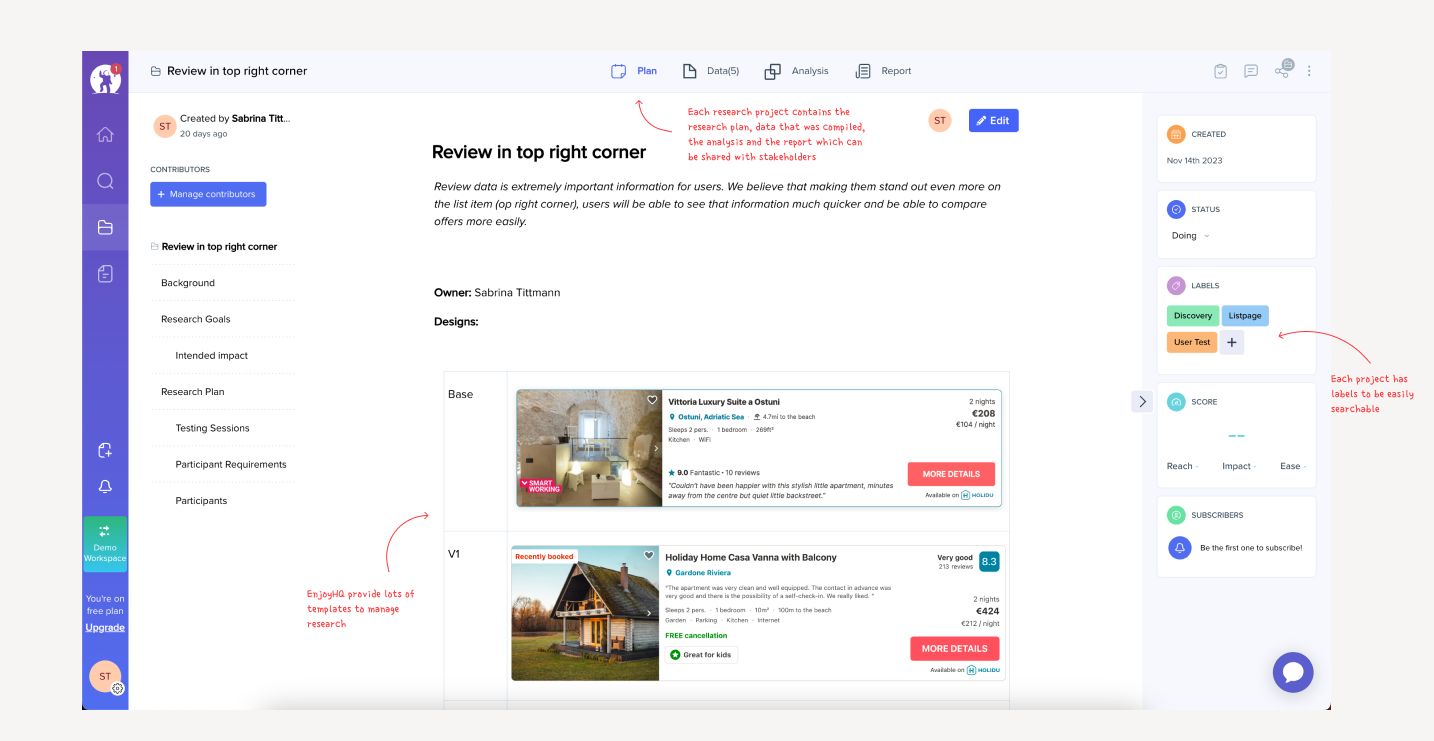
Dovetail
- even more expensive (19950 €) at 10 contributes
- most functionalities can be reproduced in Confluence
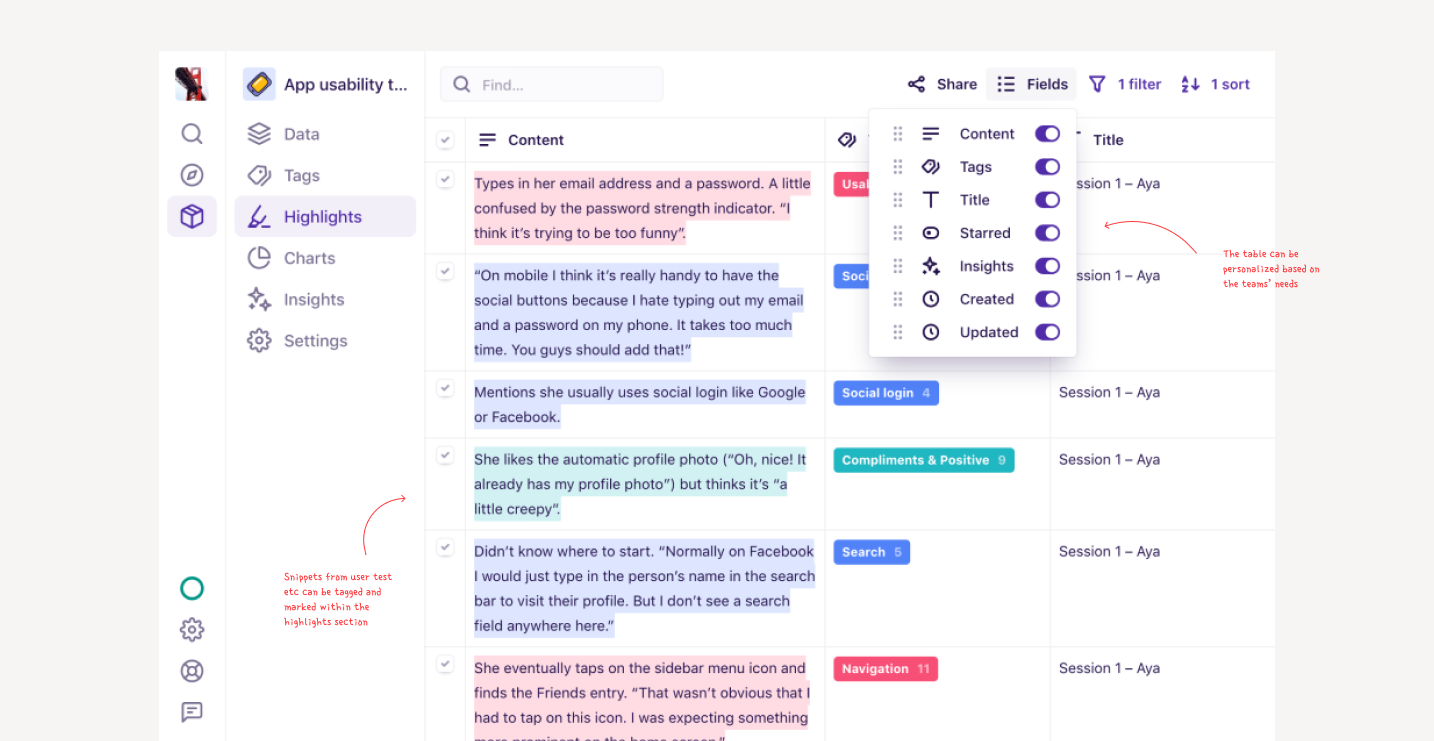
Notion
- build in functionalities for tracking research
- lots of templates for documenting research and its impact
- additional costs of 2040€ for 10 contributors yearly
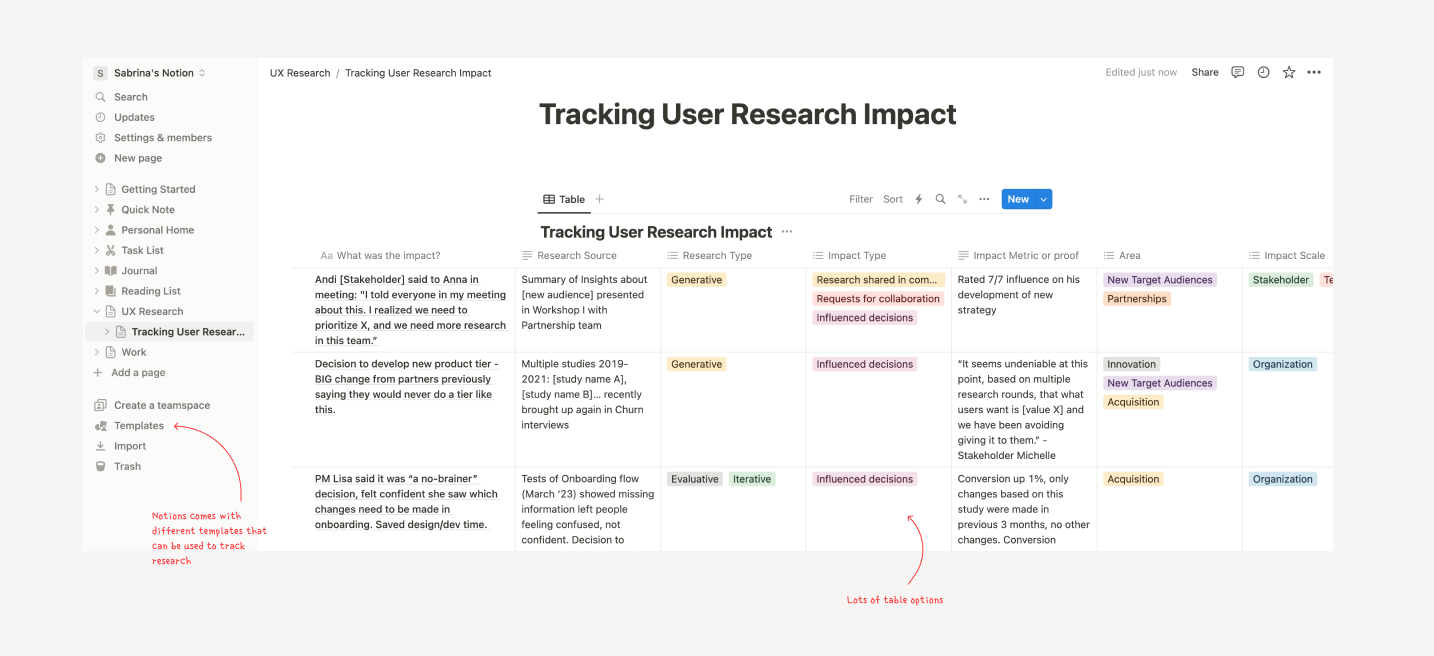
Confluence & Google Drive
- everyone already has an account, hence no additional costs
- data & environment is safe
- everyone has access
- no additional resources needed
- most functionalities of the tools above can be reproduced
- lots of research is already stored in Confluence
Conclusion
We will be using a dedicated space in confluence for our research repository. This is the tool we already have in our tech stack. Most functionalities that we observed in the above tools can be somewhat reproduced in Confluence.
How it works
To provide an overview and to be able to filter research by topic, we introduce a table that contains a short description, keywords, and more details about the research.
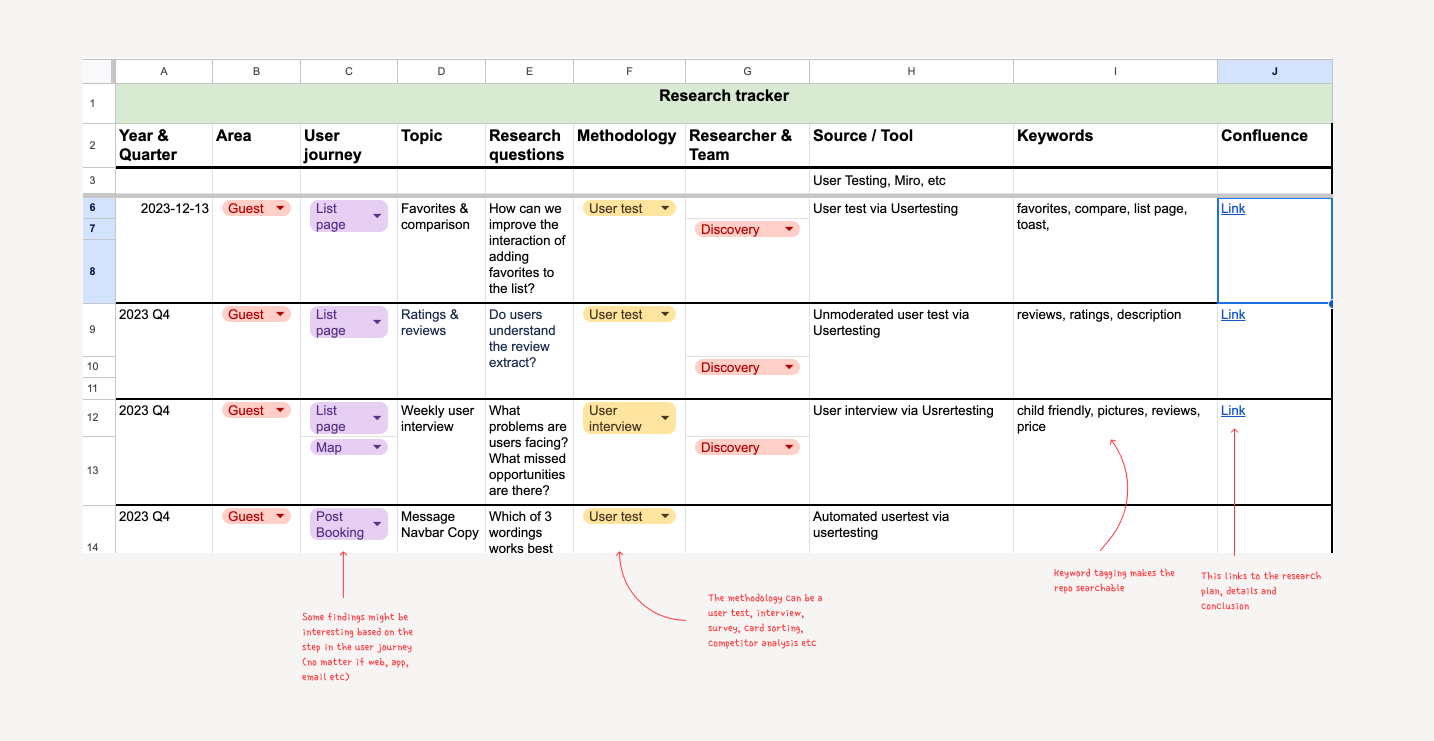
Work will be streamlined by using templates for researches and conclusion sections for readers. Additionally best practice pages offer guidance on topics like UX Writing Testing.
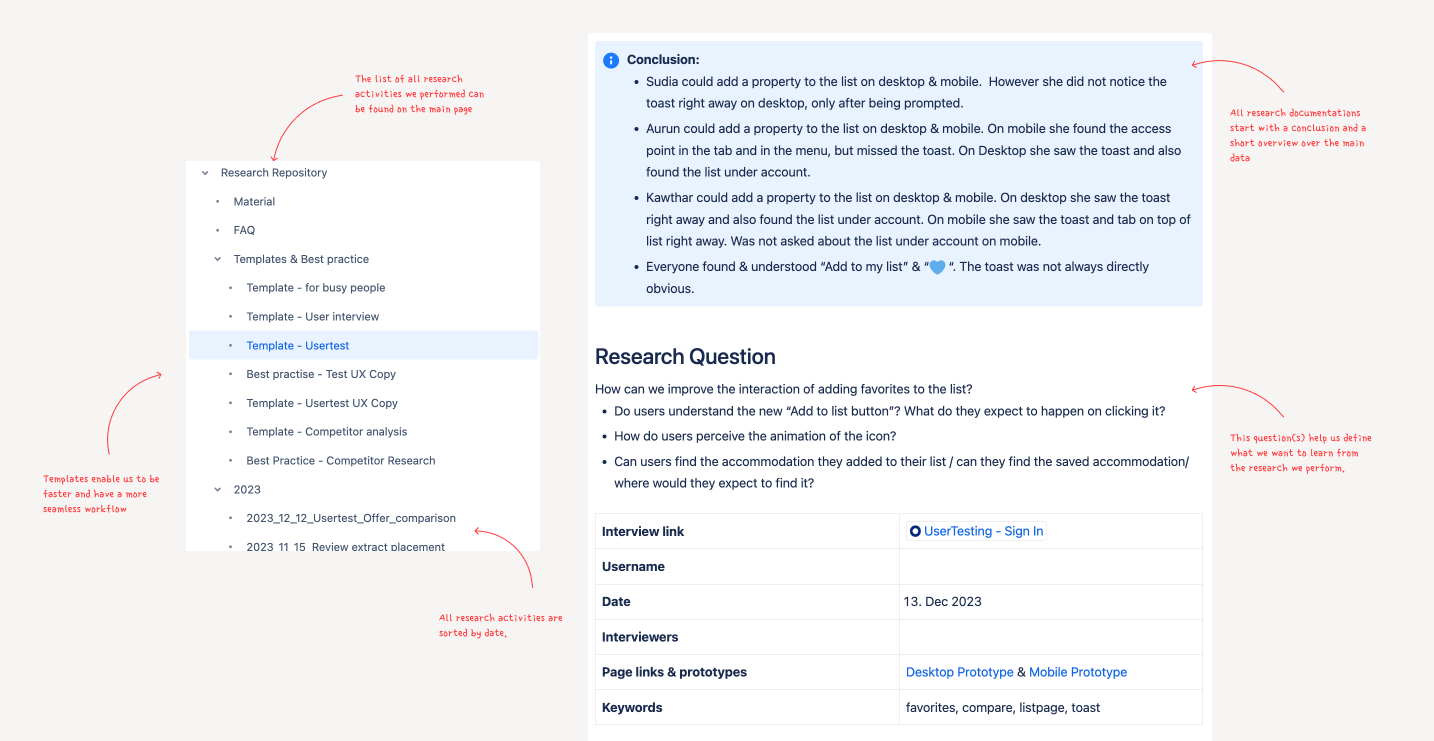
To make all content searchable we will tag the pages and add keywords in each pages header section.

As additional support, all research resources are linked on the materials page. This includes the link to Looker, User testing and interesting slack channels.
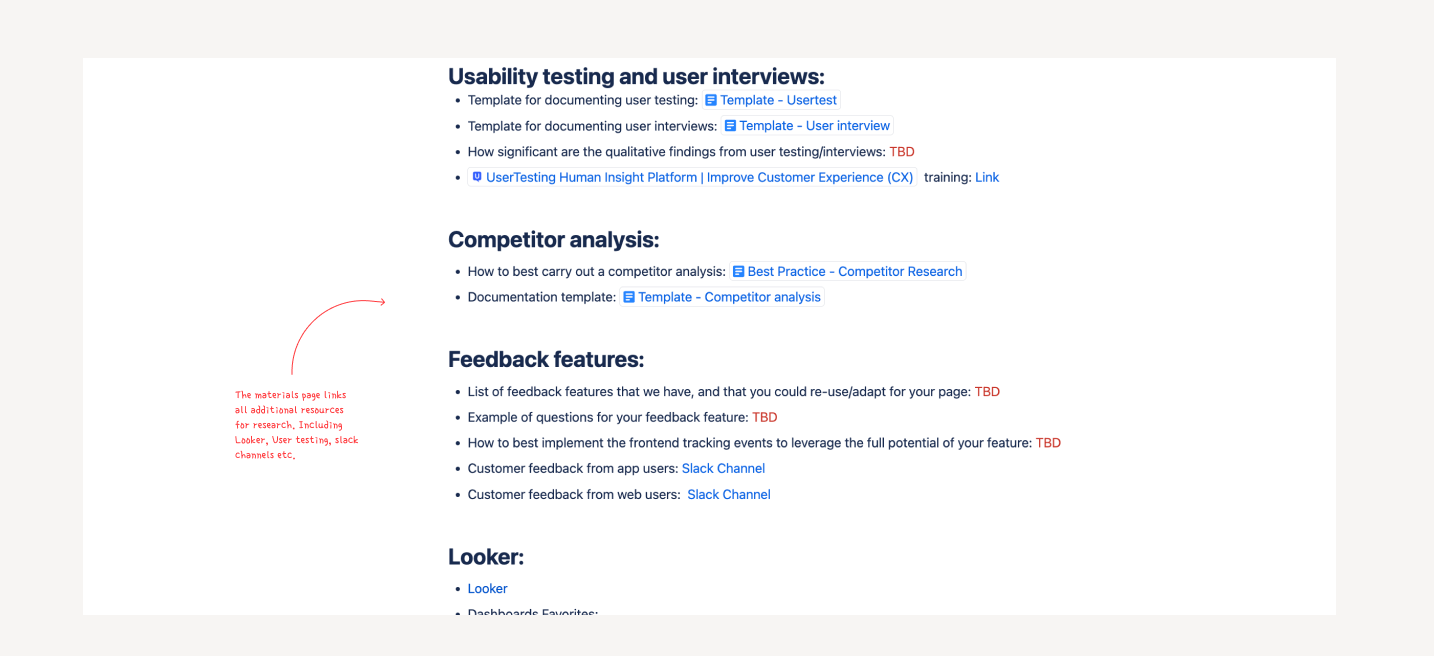
Moving forward we will continuously collect feedback on how we store research, and will iterate on the way our research repository works.
Thanks for reading and have a great day!
